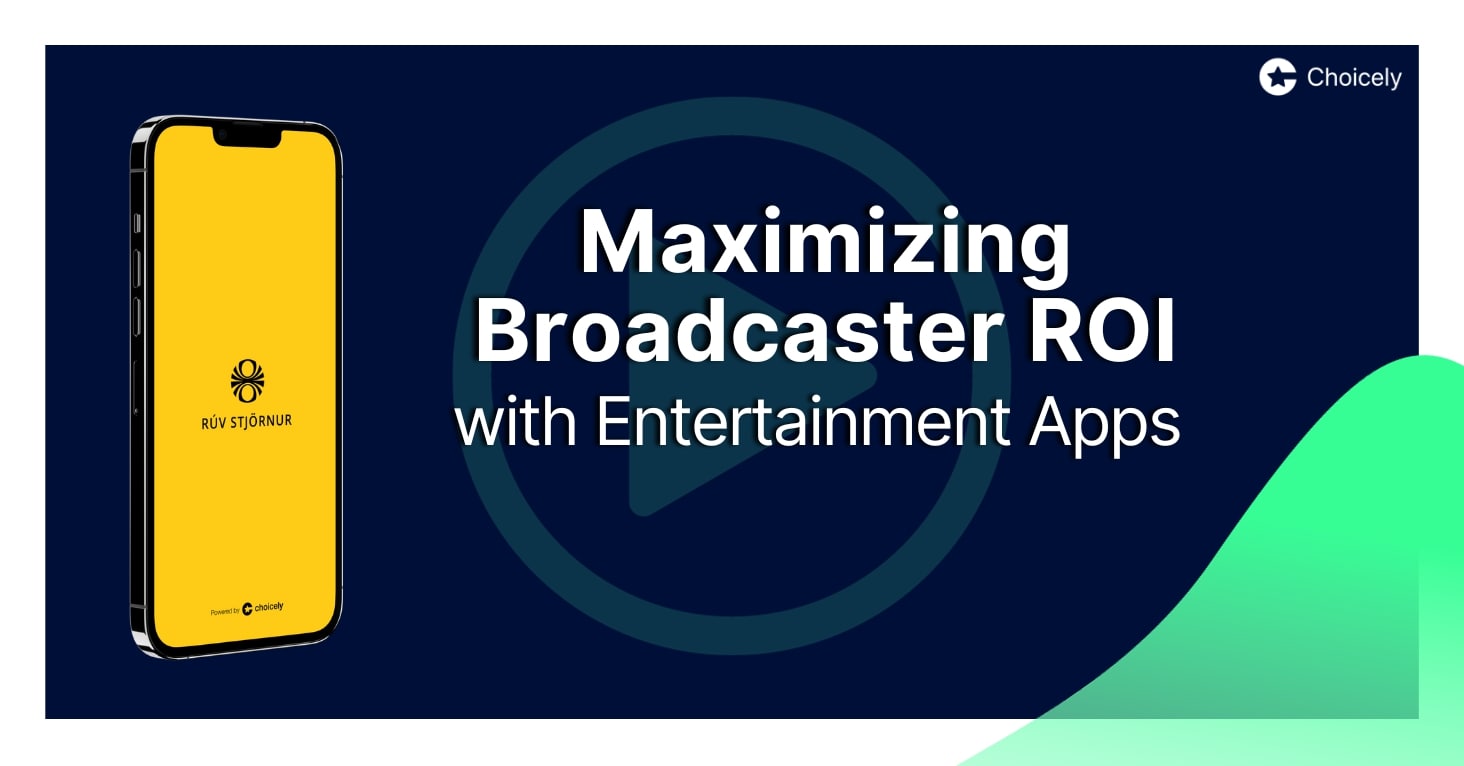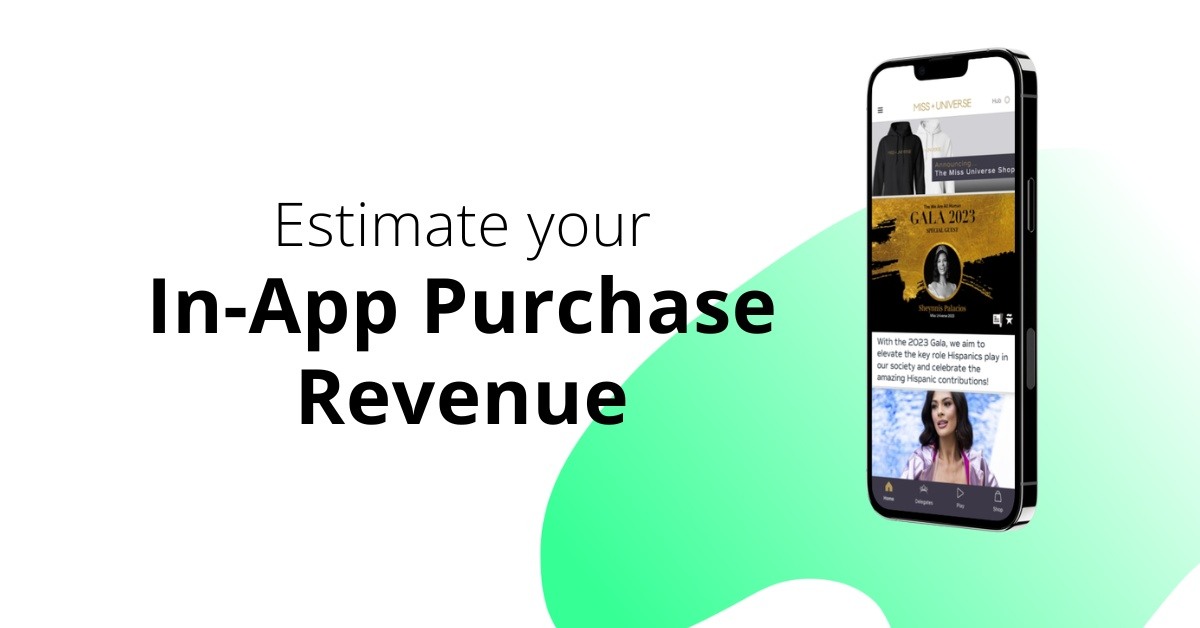app development

The Benefits of Mobile Apps for Businesses
What are the business benefits of mobile apps? What's the importance of apps for consumers of today? Let’s explore these questions with the help of studies.
Kaius, CEO
Nov 22, 2022

Would your business benefit from a mobile app?
Mobile apps have broken through in the last 10+ years, since the invention of smartphones in 2008. More people than ever have access to apps as now half of the world owns a smartphone.
The chances are you have several apps in use yourself – and your customers do too.
But why does a business need its own app?
Let’s explore that question further.
Mobile usage statistics tell a clear story
Currently, there are 5.7 million apps available in the world’s three biggest app stores combined.
People spend a lot of time on apps. An average across the world is 4,5 hours per day.

The usage of mobile browsers only consists of about 10% of the time, according to eMarketer and Statista.
Majority of that time is spent in native apps, about 90%.
And your brand could have a part of that share.
Mobile apps are great for growing customer loyalty
Because customers spend so much time with apps, an app is a great way to build your relationship with them.
The more time your audience spends with your brand, the more likely they are to become loyal customers, buy more often, make bigger purchases, and refer your business to others.
This creates a positive cycle, and a better business.
For users that download an app, the time spent with the brand increases.
There are many reasons for this:
- App users are more engaged with your brand than other users. Not every customer downloads your mobile app, but those who do are more likely to be your loyal “superfans”.
- App engages users and makes further interaction with your brand easier. This adds up if they have subscribed, given their contact information, or credit card number. It’s easier to keep doing business with your brand, than switching to competitors.
- Users spend more time using apps than websites. According to our experience, an average of 10 minutes spent per session for a single branded app is good but nothing out of the ordinary. That is great compared to typical website statistics.
On top of these things, you can boost customer loyalty and purchases by leveraging the features an app provides: activations, surveys, voting, offers, rewards, new content, and so on.
And it works. In a 2020 study made in the retail industry, mobile app usage had an almost perfect correlation with increased sales. In a Google study, 3 out of 4 consumers reported preferring to do business with brands whose apps are seamless, easy to use and allow them to make transactions quickly.

App opens up a direct sales and marketing channel
By launching a mobile app, you can establish a direct marketing channel with your loyal fanbase – a channel that offers a better experience than other direct marketing channels: email, text messages or snail mail.
For most businesses, a mobile app is a brand new channel. Compare that to optimizing and polishing your existing channels: how much added business will you get from each option?
In the center of this channel are push messages – a true superpower of mobile apps. Push notifications are targeted, relevant and hard to ignore, and they can take the receiver into the desired view within the app. They also have very high engagement rates. 40% of users interact with the messages within an hour of receiving them.
Mobile apps have become an established sales channel, as there are multiple ways to monetize app users. 79% of American smartphone users have made a purchase online using their mobile device in the last 6 months.
Mobile commerce – or mcommerce – is expected to grow rapidly during the next few years, according to Tidio & eMarketer Insider Intelligence.
Build your app in such a way that the audience comes for the immediate added value – great content, experiences and entertainment – and they can buy your products and services easily any time.
There are many options for bringing a digital point of sales into the app:
- Ecommerce store
- Ticket store
- Bookings
- Lead generation forms
- Physical stores (Directions, business hours, offering)
- Paid memberships
- In-app purchases
Offer these, and with enough active users you are bound to make sales through your app.

App facilitates a two-way communication with customers
Mobile apps are a great facilitator of a two-way relationship with your customers. You can ask customers for feedback and activate your audience.
There are tools such as voting and surveys where your audience can take part and influence what’s happening, whether you’re running a competition, show, or sharing content.
A mobile app is also a natural place to ask for feedback and offer customer service.
Learn more about increasing user engagement with your app.
Mobile apps offer user experiences and features other channels can’t match
So mobile apps are popular, but why? The reasons are in its core characteristics.
Better UX and reliability than websites
Mobile apps bring a superior user experience compared to other channels, such as the website. Opening a mobile app requires less clicks – it’s right on the user’s home screen. No need to open a browser, write an URL, and wait for the page to load.
Compared to websites, apps also offer an experience that is 100% native and custom-built for the mobile phone. Apps also work faster and more reliably.

Offline features are useful on the go
Mobile apps can be easily used on the go, like the word "mobile" suggests. It makes your business even easier to reach than your website, let alone a physical location.
Not all features require an internet connection, apps can be used offline unlike websites. This makes mobile apps excellent for many kinds of use cases, such as crowded events with poor network or field work.
Collect 1st party data
The data you get from mobile app users is data you own – similarly to website and email data, but unlike data on social media platforms.
Audience attention
The users you get into your app only see content from your brand – there's no need to compete for attention like in social media platforms, usually requiring paid promotion.
Leverage features of the mobile phone
Take a picture and share it, or find out where you are on the map. Apps benefit from the characteristic mobile features like camera and GPS.
Mobile apps are easy to make and maintain
Traditionally, mobile apps have been seen as a cumbersome IT project that only big companies can afford. Partly because of the perceived cost – and partly because of the quality, mobile apps are seen as a premium product.
However, the cost of making a mobile app and time-to-market are decreasing. Thanks to no code and low code tools, mobile apps don’t have to be built from scratch but out of pre-built templates. It no longer requires six digit budgets to build a mobile app.
Check out our App Cost Calculator to estimate what custom coded apps and no code apps can cost.
Just like website builders such as Wordpress or Wix fed into the explosive growth to the amount of websites in the world a decade ago, no code mobile app builders like Choicely will do the same for mobile apps in the next 5–10 years. Mobile apps will be more attainable to more businesses than ever before.
How big is the mobile app industry then? The total app revenue is projected to reach 430 billion US dollars in 2022, and 614 billion in 2026. It's 43 percent and 184 billion growth in just 4 years!
The no-code/low-code market value is estimated between 10–26 billion US dollars, and its value is expected to grow by 3X–4X in the next five years.
Conclusion
Does every business need a mobile application? No.
But there are definitely many good reasons to build one from customer preferences to business benefits and timing. Right now, mobile apps are a premium product that has become attainable for many kinds of businesses – not just for big brands and enterprises, but for SMBs, and even solopreneurs.
In its essence, a mobile app is a premium, direct connection between your audience and your brand. If you have an established audience or customer-base you want to serve better, offer them content, provide them ways to engage with your brand, or monetize them by offering a digital sales channel – I believe you should seriously consider getting an app!
Build your app with Choicely
Create your app for free. Start paying only when you're set to publish.
Keep reading, here are some similar posts

What are the benefits of Entertainment apps and how can broadcasters make the most out of them? To learn more...

Sponsorships are a great way to grow your app. With sponsorships you can fund your app or increase its...


